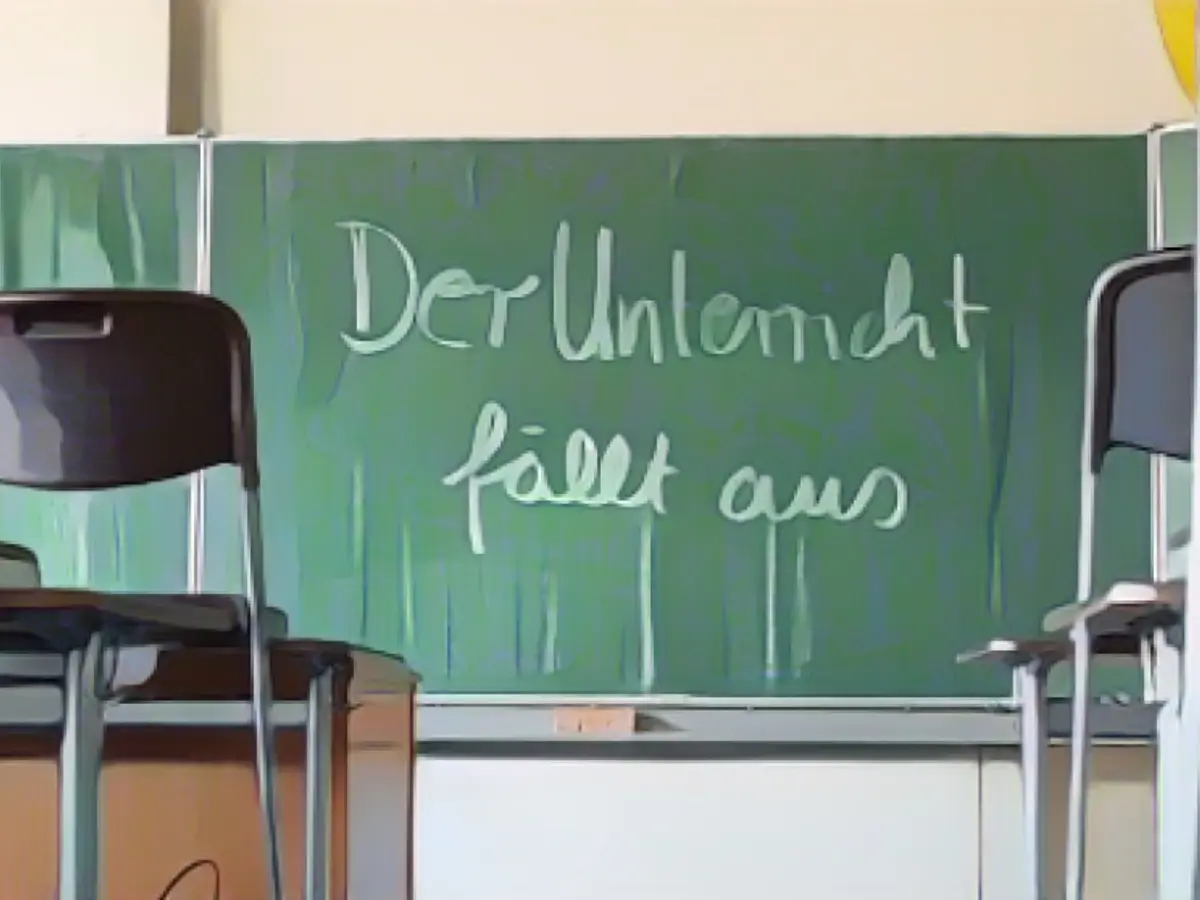Struggling Teacher Speaks Out: "We're Falling Behind in Education"
Herford, NRW - The Pisa test results left no room for optimism. "This was to be expected," says Ebel. "We are, indeed, a country rich in knowledge and resources. If urgent action isn't taken, we risk becoming a country utterly left behind in the realm of education."
Ebel has been teaching German and history for 15 years at a comprehensive school in Herford, bearing witness to daily verbal hostility from her students.

"The classes themselves are challenging enough," Ebel explains, "and we would need to have two teachers to minimize disruptions. One teacher would have to focus on keeping lessons intact despite constant interruptions."
In the classroom, Ebel recalls, "I can barely turn my back on them while writing on the board and am pelted with paper or other objects from behind."
Ebel further describes her predicament, stating, "Many students refuse to learn. Some cannot concentrate for more than a minute, while others even fall asleep during lessons. I've encountered fifth-graders who cannot write on a line, struggle with grammar, and refuse to create anything on paper."

Birgit Ebel attributes some of the problems in her school to the cultural background of her students. More than 80% of them have an immigrant background.
"German is not spoken in many homes. Working with text and writing is becoming increasingly challenging. I advocate for more intensive engagement with parents," Ebel demands.
She continues, "Of course, there are milieus where it is difficult for parents to participate. However, many are not interested in their children's performance. They transport their children to school in large vehicles and that is the end of it."
Herford Teacher Calls for Action
Ebel's anger is not limited to children and parents. She also critiques the school system, stating, "There are 45 different school systems in Germany. That's too many. The social gap is expanding rapidly: every school should receive standardized support. I accuse the politicians of complete failure."
Ebel also identified increasing violence among students and against teachers as a contributing factor to the students' unwillingness to learn. "Even the youngest children are watching violent and pornographic videos on their phones. This exacerbates mental and social neglect. It will be a daunting task to help them in the future."
By addressing issues such as parents' lack of interest in education at home, poor language skills in immigrant students, and more intensive parental involvement, as well as advocating for changes in the school system, Ebel believes that the education system in her school can be improved.
Addressing Challenges in German Classrooms
To address the challenges faced by teachers in schools with a high percentage of students with immigrant backgrounds, several measures can be implemented:
- Implementing language skills requirements through entry assessments and dedicated language courses for students who do not meet German language proficiency standards.
- Developing cultural integration initiatives such as teaching German values, parent-teacher partnerships, and community engagement like workshops and events to celebrate cultural heritage.
- Ensuring teacher training and support programs provide educators with strategies for handling diverse classroom environments, managing cultural differences, and fostering inclusive learning spaces.
- Investing in supportive frameworks that ensure teachers demonstrate a united front in addressing behavioral issues and setting clear expectations for students and families.
- Employing flexible engagement options like virtual sessions and multilingual support to encourage parental participation, despite transportation or time limitations.
- Including family experiences in the curriculum to make learning more meaningful and representative.
By integrating these measures into the education system, schools in Herford and across Germany can better support teachers in handling diverse classroom environments and addressing the specific needs of students with immigrant backgrounds.
Read Also
- Explore educational initiatives in .
- Learn about .








